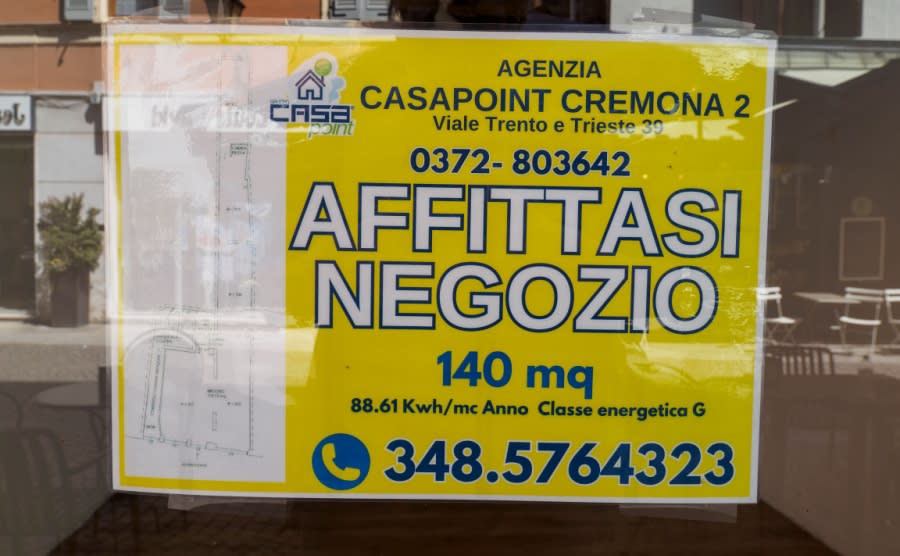Italy’s timeless appeal attracts international property investors in search of not just income and capital growth, but a better quality of life too. Whether you’re drawn by art, food, wine or rolling countryside, Italy offers more than just romantic holiday getaways – it’s also a solid place to invest your euros.
Owning property in Italy can be incredibly rewarding, but it requires a clear understanding of the local market, legal requirements and property management logistics. From navigating regional rental laws to understanding how to maximise returns, this guide is designed to help you approach property investment in Italy with confidence and clarity.
Contents
- Why invest in Italy?
- Building a profitable property portfolio
- Understanding the market in 2025
- Rental yields and demand trends
- Legal considerations for investors
- What to know about renting out your property
- Managing your Italian property from abroad
Why invest in Italy?
Italy has been a magnet for overseas buyers for decades, and it’s easy to see why. The country combines stable property law with cultural heritage, excellent infrastructure and wide-ranging lifestyle appeal. From bustling cities like Rome and Milan to tranquil Puglia villages and Alpine resorts, opportunities abound for every type of investor.
Start your property buying journey today
While property booms came and went in countries like the UK and USA, Italian property prices have remained affordable. Even within the eurozone according to official EU data, Italy is the only country where prices in 2025 are lower than in 2010. Is that a reason not to invest? Not necessarily; the largest falls were all between 2012 and 2014 and since 2020 prices have grown in more years than they have fallen.
In recent years, Italy has also introduced incentives to attract foreign buyers. This includes favourable tax arrangements for retirees and entrepreneurs, and in some areas, very low-cost housing to reverse rural depopulation.

Buying Italian property is also relatively transparent and safe. Foreigners face no restrictions on ownership, and the purchase process is governed by a legal framework designed to protect buyers. That said, bureaucracy can move slowly. Working with trusted local professionals is essential to streamline the experience.
As of 2025, interest in digital remote work has also renewed interest in Italy’s smaller towns and countryside. This growing demand from expats and telecommuters has opened new doors for buy-to-let investments in lesser-known regions while reducing long-term vacancy risks.
Building a profitable property portfolio
To succeed as a property investor in Italy, you need more than just money and a dream. You need a strategy. Start with your goals: are you prioritising steady rental income, capital growth or a blend of both? Your objectives will help determine which properties, locations and tenancies best fit your needs.
Invest time in research. Examine property values and market trends in different regions. Coastal hotspots like Amalfi and Tuscany carry prestige, but may yield modest returns compared to lesser-known inland towns. Speak to a local estate agent or attend virtual events like those hosted by Your Overseas Home to stay informed.
Financial planning is equally important. Identify all potential expenses — not just the purchase price, but notary fees, taxes, maintenance and property management. A specialist financial adviser can help you build a realistic budget and financing plan, including currency strategy if purchasing from abroad.
Diversify wisely. Rather than putting all your funds into one glamorous flat in Venice, consider a mix of urban and rural properties that react differently to market changes. Review each investment annually and stay flexible, adjusting your approach based on changes in regional legislation or rental demand.
Understanding Italy’s property market
Italy’s property market remains stable in 2025, despite economic shifts and ongoing debates around rental regulation. Buyer appetite remains strong in areas where lifestyle appeal is high, infrastructure is reliable and value for money is still possible.
Interest rates across Europe remain moderate, following the 2023–2024 hikes that affected borrowing costs. While mortgage rates in Italy are lower than in many neighbouring countries, affordability rules remain strict. As an overseas investor, you’ll typically need a deposit between 25–30%, depending on your residency status and lender.
Government restrictions on short-term lettings continue to evolve in cities like Florence, Bologna and Milan, where housing pressures have led to caps on Airbnb-style lets. Each comune (municipality) has its own rules, so legal advice is essential before choosing a location for a short-let investment.
Despite this, regional towns and rural homes in areas like Le Marche or Umbria have gained popularity. Buyers include retirees, digital nomads and holiday-home seekers who want authentic experiences without the price tag of Tuscany or Lake Como. Smart investors are following the flow.
Rental yields and demand trends
Return on investment in Italy depends heavily on location, rental model and property type. In 2025, average gross rental yields nationwide are estimated at 5.4% according to Global Property Guide, though this varies significantly.
Short-term holiday rentals remain strong in hotspots like Rome, Venice and coastal Sicily. These higher yields must be balanced with stricter regulation, seasonal demand and intensive management needs. In contrast, long-term rentals offer stability and lower turnover, especially in cities with large student populations like Bologna or Florence.
The pandemic’s legacy reshaped buyer preferences. Properties with outdoor space or a dedicated home office are especially prized – whether by holidaymakers or remote workers. Investors who choose properties with these features often see better occupancy rates and reviews.
For non-resident landlords, understanding operational costs is vital. Consider cleaning, taxes, insurance and maintenance. Court costs add risk in markets with longer eviction processes for non-paying tenants, such as Italy. To reduce vacancy, high standards and quick responses make all the difference. And don’t ignore your online presence – reviews matter.
Legal considerations for investors
Though the Italian property-buying process is well regulated, it can be time-consuming. Italian bureaucracy has a reputation for slowness and complication, particularly if you’re unfamiliar with the system. Having an experienced property lawyer can reduce stress and prevent costly mistakes.
Your first step as a buyer is to get a Codice Fiscale – your Italian tax identification number, required to conduct any legal or financial transaction. This is free and can be easily obtained through the Agenzia delle Entrate or your local consulate.
There are different types of property ownership to be aware of, including outright freehold and cooperative structures typical of apartment blocks. Make sure your lawyer performs full due diligence, checking for debts, unpaid taxes or planning issues.

If planning to secure a mortgage through an Italian bank, non-residents often face more stringent lending criteria. Consult a bilingual mortgage broker early in your process to understand your borrowing capability based on income and nationality.
Finally, talk to a specialist on inheritance law. Italy’s forced heirship rules can complicate plans if you’re buying jointly or holding assets abroad. Structures such as an Italian property-holding company (like an SCI or SRL) may offer strategic advantages – but only if set up with professional advice.
What to know about renting out your property
Letting property in Italy can be a great source of income, but comes with strict rules that vary depending on rental length and property use. For short lets (less than 30 consecutive days), there is no official lease contract required, but you must still report to the local tax authority and police portal.
If you list on platforms like Airbnb, they will usually withhold a portion of income tax – typically 21% under the cedolare secca flat-tax regime. This tax scheme simplifies reporting, making it popular with international landlords. However, local rules in your region may also apply – so legal advice is invaluable.
For rental contracts longer than 30 days, landlords are required to formally register the tenancy agreement with the Agenzia delle Entrate. You’ll also pay registration tax unless covered under the flat tax. This registration protects both parties and can help legally enforce the contract if needed.
Landlords must also log all guest stays in the Italian police portal (Alloggiati Web). Registration within 24 hours of a guest’s arrival is compulsory, with specific rules for shorter stays. Delays or failure to report can result in fines, so make sure this is handled correctly – whether by you or your property manager.
Managing your Italian property from abroad
Owning an Italian property from overseas can be joyful – but it needs good management. Whether you’re planning to rent it out or just keep it ready for your next visit, having a local plan in place is the difference between a stress-free escape and a troublesome chore.
For long lets, you might handle things yourself with the help of a trusted neighbour or friend. But for short-term rentals or multiple homes, a professional property management company is usually worth the investment. These services typically handle tenant screening, check-ins, cleaning, emergency repairs and maintenance – all the things you don’t want to do from 1,000 miles away.
Fees range from 15% to 30% of rental income, depending on the services included. Some firms offer everything from online listing management to welcome packs and utility payments. While these fees may seem steep, they are often offset by maximised occupancy, higher rental income and saved time.
If you’re managing the property remotely yourself, smart tools like automated key safes, smart thermostats and guest messaging apps can help – but only if you have reliable tradespeople for emergencies.
Before choosing an agent or manager, get personal recommendations and interview them carefully. A good manager will be proactive, not reactive – keeping your guests happy and your investment on track.
Ready to begin your property journey?
Investing in Italian property isn’t only about money – it’s about building a lifestyle that brings value and joy. Whether you’re retiring in a sun-soaked village or diversifying your investments, Italy rewards those who do their homework.
Start by downloading the free Italy buying guide from Your Overseas Home or speak to one of our expert property consultants. With the right support, your Italian dream is closer than you think.







